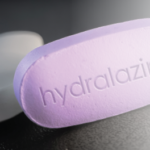More recently, a literature review to explore whether ANCA values are predictive of future relapse indicated that, among patients with ANCA-associated vasculitis, a rise in or persistence of ANCA during remission is modestly predictive of future disease relapse.2 The problem with the studies that were analyzed in this review, Dr. Specks said, is that serum samples were collected at different time intervals, different analytical methods were used, and the researchers defined remission and flares differently.
The modest association between ANCA measures and potential relapse “is true for patients treated with conventional therapy,” Dr. Specks said. “The treatment decision should never be made based on ANCA test results alone. We all have seen patients who have been maintained on immunosuppressive therapy because the ANCA test remained positive. But the thing we need to get out of our minds is that a positive ANCA test means the patient is not in remission.”
Implications for Treatment
Ultimately, the ANCA type does matter from a clinical perspective. To date, serial data that are available for ANCA test results are mostly PR3 versus MPO. Research has shown that PR3-ANCA conveys worse mortality, higher relapse rates, and more rapid renal function loss.
In research, when patients are separated by ANCA type at baseline, there is no difference for treatment among MPO-positive patients in comparative studies. However, PR3-positive patients achieve superiority with rituximab, Dr. Specks said, and different responses have been seen with rituximab versus cyclophosphamide treatment. Clinically, a PR3-ANCA patient may respond with recovering renal function, Dr. Specks said, whereas an MPO patient may not respond in remission with the same treatment regimen.
“With serial testing, once you know the ANCA in your patient, you might limit yourself to a certain assay,” Dr. Specks said. “The switch from MPO to PR3 almost never happens.” The diagnostic utility of ANCA testing depends on the methodology and clinical setting, and it is important to note when predictive pairs are present. If there are mismatches or multiple positive antigens, Dr. Specks advised, “get your thinking cap on, discuss it, and keep an open mind to avoid going down the wrong path with your patient.”
Kimberly J. Retzlaff is a medical journalist based in Denver.
References
- Finkielman JD, Merkel PA, Schroeder D, et al. Antiproteinase 3 antineutrophil cytoplasmic antibodies and disease activity in Wegener granulomatosis. Ann Intern Med. 2007;147:611-619.
- Tomasson G, Grayson PC, Mahr AD, Lavalley M, Merkel PA. Value of ANCA measurements during remission to predict a relapse of ANCA-associated vasculitis—a meta-analysis. Rheumatology (Oxford). 2012;51:100-109.

